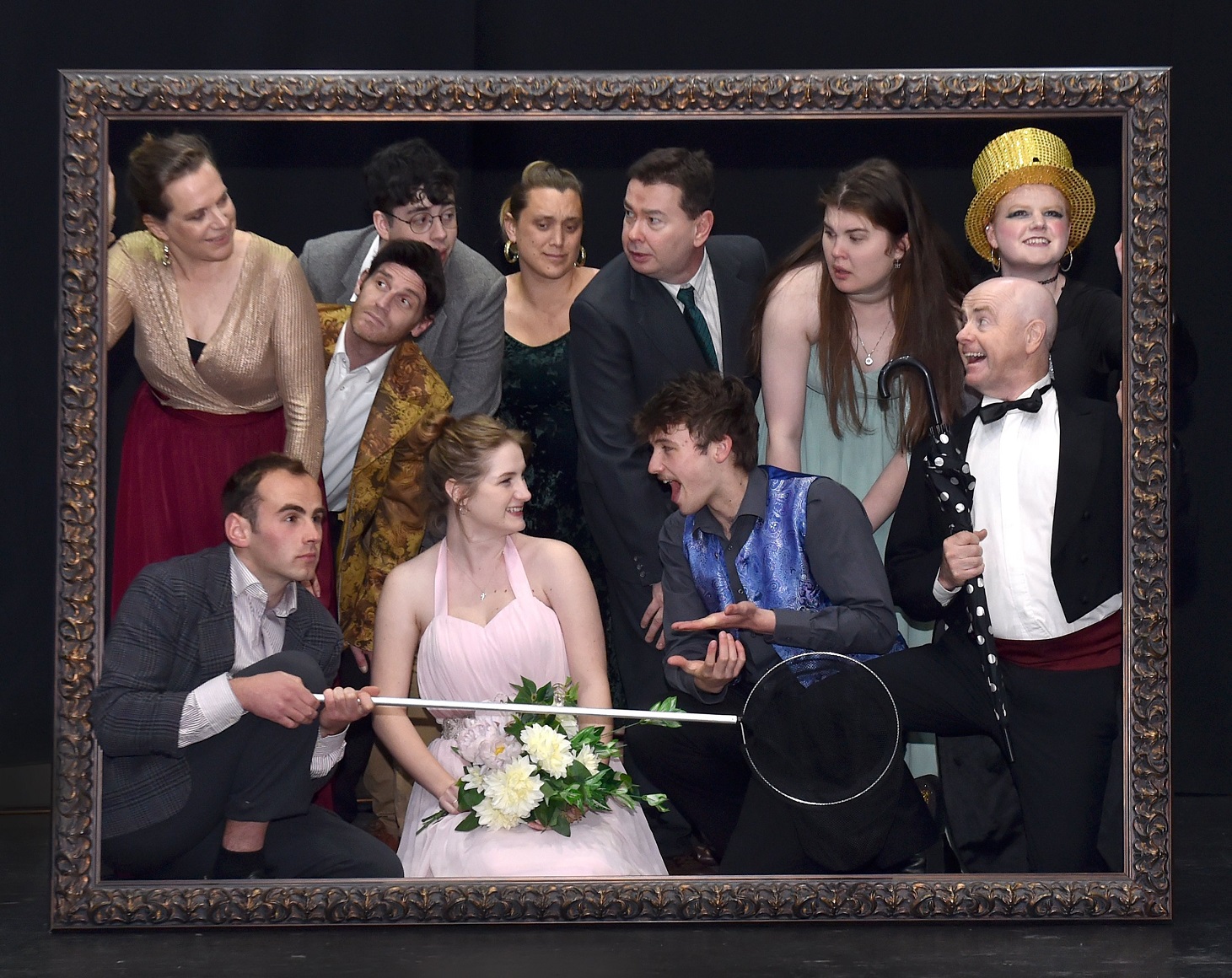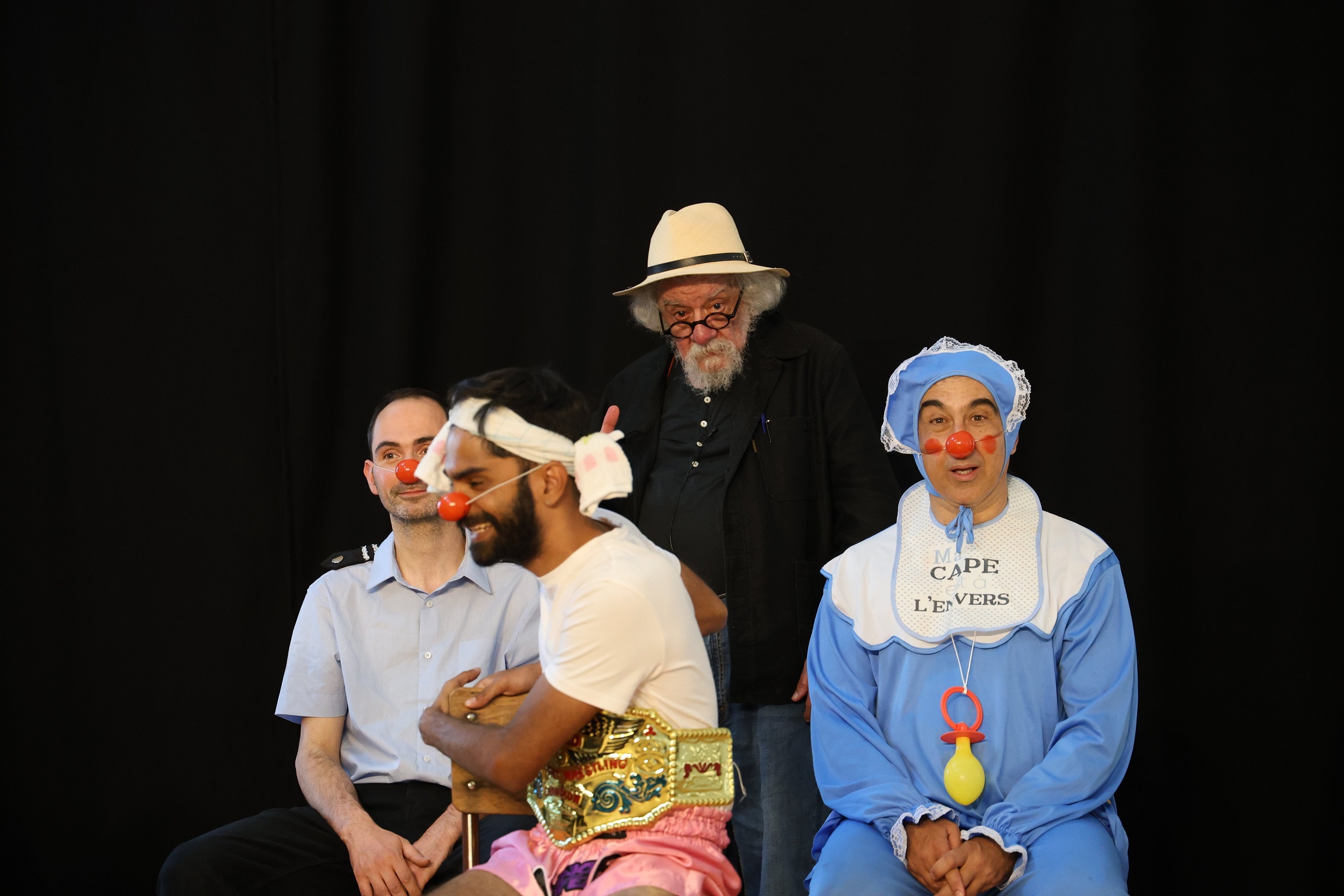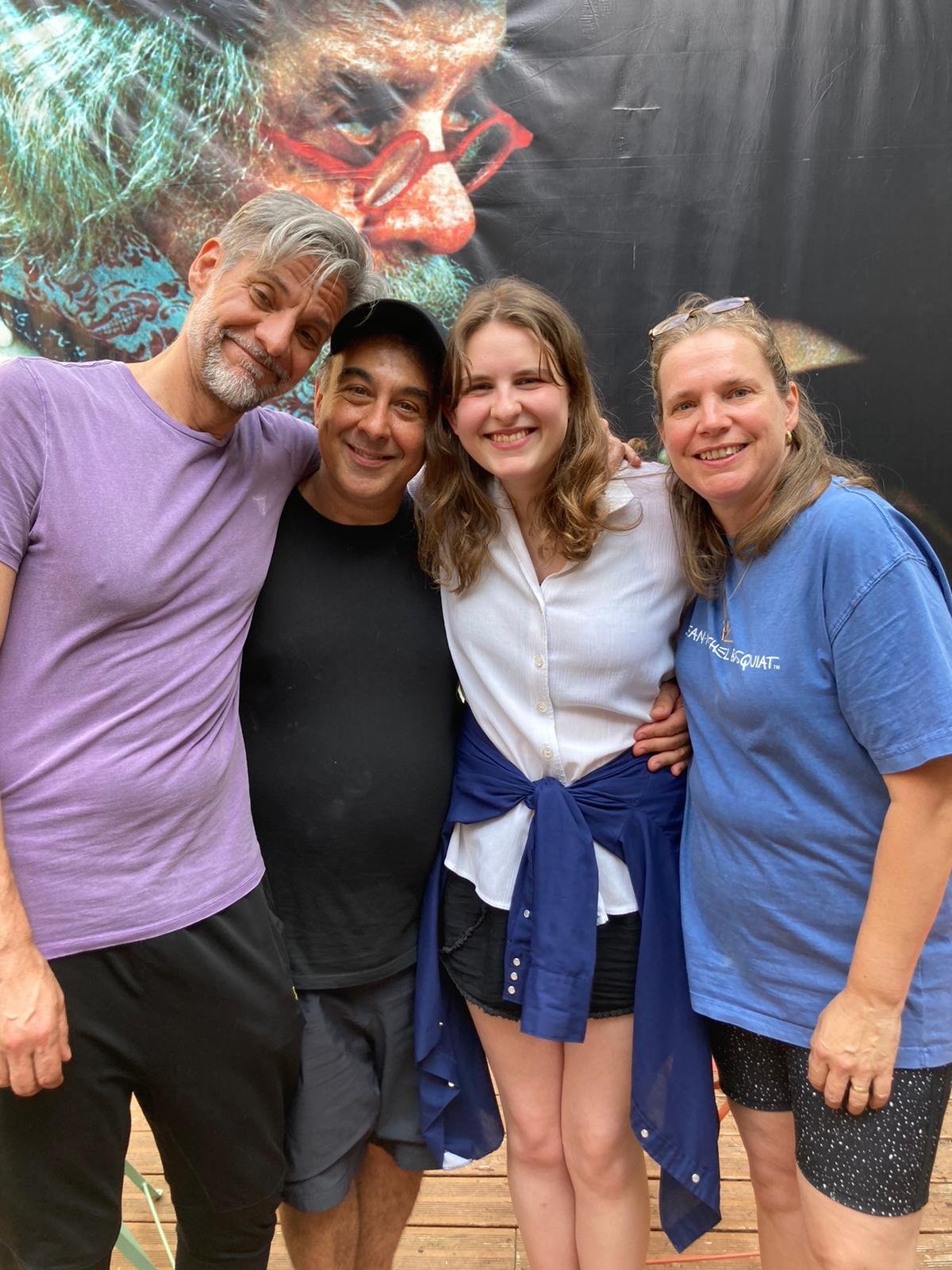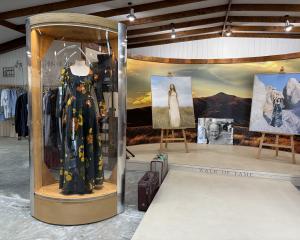
Putting a creative twist on one of the greatest classic works, The Cherry Orchard by Antov Chekhov, is not for the faint-hearted.
But Sarah and Blaise Barham are definitely not that, with plans afoot to add the comedy back into the Russian play, along with aerial silks and a dash of circus.
"We decided poor Chekhov wrote a comedy and everybody’s been playing it melodramatically and seriously all this time and he wanted it to be a comedy, so we thought ‘we’ll do that for you, mate’," Sarah says.
The production of the play, written in 1903, comes after the Barhams’ busy Dunedin Fringe season, following their move to the city from Queenstown after they sold their company, Southern Lakes English College, and decided to concentrate on their theatre hobby fulltime (they both act and direct, and Blaise is a past-president of Remarkable Theatre Queenstown).
They chose Dunedin after meeting theatre academic Lisa Warrington when she directed them in a Queenstown play, Away, for which Sarah won an Otago Southland Theatre Award for best supporting female.
"We wanted to advance our theatre studies and Lisa encouraged us to come to Dunedin. We liked there was Allen Hall and a vibrant, supportive theatre scene."
Through their production company Sahara BreeZe (SBZ) Productions — set up to tour Dear Lupin with Blaise’s 84-year-old actor father, whom he had never acted with before — they put on two shows in the Dunedin Fringe, and in doing so met director and playwright Richard Huber, who wanted to write a play for them.
While studying theatre in Dunedin, their production company was still putting on shows in Queenstown and brought Dracula: The Bloody Truth to the Mayfair in Dunedin.
"Then Covid affected everything."
So by this year, they had a backlog of shows developed and ready for production in this year’s Dunedin Fringe festival, such as Out at Sea, which won a touring award, Huber’s Wonderful (winner of a Unesco Literature Award), and The Bear, which was nominated for four awards.
They also took part in Dark Radio, which won the Excellence in Theatre Award.
"We were involved in six shows; there were so many opportunities to broaden our knowledge and skill-base."
The Bear, a short Chekhov play, was chosen as the playwright was one of the favourites of Prof Stuart Young, Blaise’s university professor.
It was Blaise’s attempt to put Prof Young’s research, on what vaudeville humour is and what types of techniques are used in that style of comedy, into practice.
"I was interested in how to ... blend circus physical skills in with text."
Having a daughter involved in circus acts in Wellington, the Barhams have always been aware of that aspect of theatre.

Sarah says the couple have seen some amazing aerial and circus shows, but felt they were usually missing a narrative — even from the likes of Cirque du Soleil.
"People when they watch something they want to understand the story. They might be like ‘wow, wow’, but they’re not connected."
Inspired by seeing Star Dust, and how one of its performers, Eli Joseph, worked with aerial straps, they brought him back to Dunedin to help with the show.
They also called on Rochelle Brophy, of Brophy Aerials, to train the show’s actors so they could perform an aerial silks duel.
"We’re coming at it from a theatre base and adding circus."
Blaise sees that production as the first step towards doing a full Chekhov play such as the The Cherry Orchard, which is often played very straight and naturalistic.
"My investigation was in how to bring out the comedy in the piece and how to blend other aspects of physical movement, physical circus, use of aerials."
That led the couple to seek out training opportunities in Europe, in particular at Ecole Gaulier, with master clown Philippe Gaulier and his trainers Carlo Jacuzzi and David Coll Garcia, whose alumni include British actors Emma Thompson and Helena Bonham Carter and comedian Sacha Baron Cohen.
"We went to study Chekhov, Shakespeare and clowning and character. Seeing theatre there has had quite an impact."
Blaise was able to learn a lot about directing, such as how to make small changes that make things funny.
"You have to make that connection with the audience. Gaulier would say ‘they could just read the play, you have to bring it alive’. We played a lot of games underneath the text trying to work out the underneath of what the words are saying. We learnt a lot from that."
They also visited famous Russian clown Slava Polunin’s theatre laboratory Moulin Jaune (The Yellow Watermill) outside Paris, which was also very inspirational.
"Using those skills to bring in comedy routines into The Cherry Orchard, physical pieces, Chaplainesque-like into this piece."
Working with an adaptation of Young’s translation of the play, they had to condense the text and insert space for the physical theatre and music — from classical to rock — with Sam Meikle on piano and guitar and singer Claire Lewis.
"We’ve got live music in there, piano pieces, the grand piano and have added two characters; one is a mother earth character and the other is the god of music."
They are aware the changes could be quite controversial for some. Knowing it is Warrington’s favourite play is another pressure.

Sarah, who is doing the university’s advanced playwriting course and plays Lyubov Ranevskaya in the play, says there is a capitalist element of the story; the family is running the cherry orchard into the ground and are given the opportunity to sell off the land for development and retain the family home.
"You can keep your land but you have to destroy the beauty — but the family don’t want to do that. So often people look at the quick option — cut down the trees and develop and you save your money, but actually what you are doing is destroying the planet."
She is enjoying her character, who has lost her husband and son then loses everything to someone who abuses her trust.
"She is so mercurial. One minute she is happy and she loves everybody and ... the next her claws come out."
The characters are all very well written and each have their moment, they say.
"They are a gift to any actor really. There are some lovely clown moments for some of the characters and some beautiful haunting moments."
For Blaise, who has taken the year off from study, the play’s story feels very relevant to New Zealand.
When they immigrated to New Zealand in 2000 from the United Kingdom, they were amazed by the Kiwi quarter-acre dream and lack of an obvious class system.
"Yet we have seen all that change — look at Queenstown or Cromwell, where they’ve gone down to 300sq m."
Support from the Dunedin City Council means they can pay a stipend to their performers, as supporting and providing a professional outlet for the talented people in the city is important to them.
"It’s important for us to bring on new performers. There is so much talent coming through the university."
To bring the set alive, they have enlisted the help of the Fortune Theatre’s former set-maker Peter King, and the cherry orchard itself will be represented by the silks.
Through an involvement with an earlier Opera Otago production, they have been able to secure its production manager Linda Brewster and stage manager Christine Wilson for the show.
"They have so much experience from that, and we can link them up with the less experienced. It’s a great dynamic."
For further support, the production company has created "the creatives" group, including former teacher turned actor Brent Caldwell, who plays Pishchik and Firs in this production; director, actor and musician John Goudge; and director, actor, teacher and playwright Huber; as well as a bunch of up-and-coming theatre practitioners.
To see:
The Cherry Orchard, Mayfair Theatre, Dunedin, November 16-25, 7pm.












